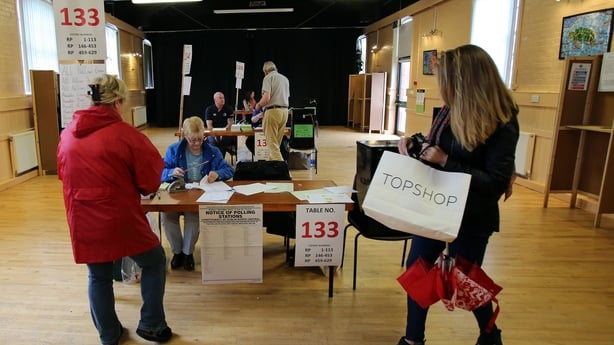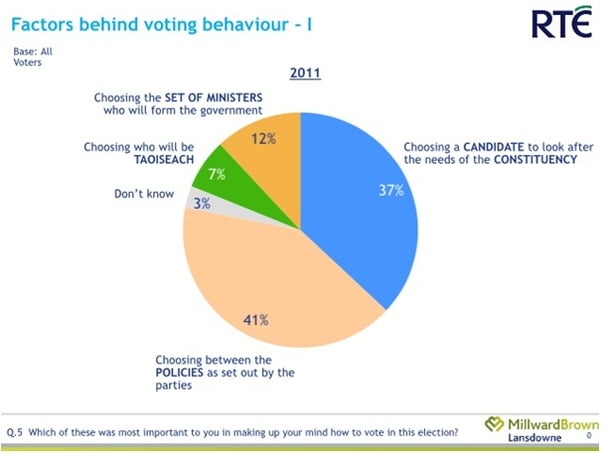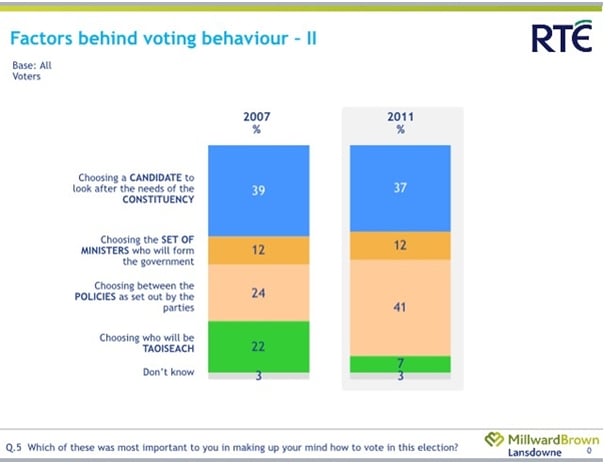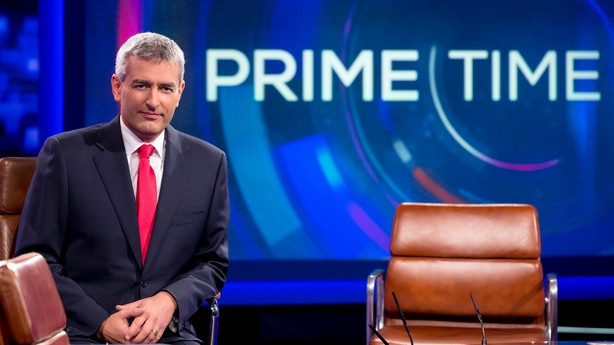This Thursday sees Enda Kenny pass a milestone of sorts – 1,800 days in office as Taoiseach, overtaking Garret FitzGerald's 1,799 days (in two separate terms).
In days served, he is now the most successful Fine Gael Taoiseach since John A Costello – Mr Kenny would have to stay in office until 20 April, 2017 to overtake his 2,233 days, writes RTÉ Prime Time's David McCullagh.
I have no idea if this milestone matters to Mr Kenny – or whether he is even aware of it. And such details are unlikely to influence voters.
But what does motivate voters? Why do we choose to vote the way we do?
That's a question we debated on the first edition of our election discussion programme, PT Extra, last Thursday (it's on every Thursday of the election campaign at 11.15pm on RTÉ 1 – do join us!).
The question for our panel was whether we get the politicians we deserve. My own view is that we do – after all, we elect them.
Some panellists felt the electoral system was at fault for encouraging, or even forcing, TDs to spend too much time attending to constituency matters, instead of actually helping to run the country.

It is true that TDs spend more time on constituency work than members of other parliaments, though I'm not convinced that's entirely down to our electoral system – Malta also uses PR-STV, and their MPs do a lot less constituency work than ours. Perhaps it's a cultural issue.
But what do the voters say? Are they swayed by the needs of their constituency, or the needs of the nation?
Luckily we have something to go on. One of the questions asked in the RTÉ Exit Poll carried out in the last general election addressed this very issue.
As they left the polling station, voters were asked by pollsters from Millward Brown Lansdowne why they had voted the way they had.
As you can see, 37% were most influenced by the need to choose a candidate to look after the needs of the constituency. But far more – a total of 60% – were influenced by what could be called "national" issues – the policies set out by the parties (41%), choosing a Taoiseach (7%), or choosing the set of ministers to form the government (12%).
And 3% of people who had just voted said they didn't know why they voted the way they did, which is odd.

General Election 2011 was an odd poll, taking place in the wake of the economic crash and the arrival of the Troika.
However, the same question was asked in 2007, with broadly similar results. As you can see, there was one big difference – the proportion voting on the basis of choosing a Taoiseach in 2011 was much smaller – 7% compared with 22%, a fall of 15 points, while the proportion saying they voted on the basis of party policy had gone from 24% to 41% – an increase of 17 points.

There were three possible explanations offered for this.
The first was that in the wake of the crash, policy was more important than personality; the second was that Enda Kenny's election as Taoiseach seemed a foregone conclusion, and therefore less of an issue for voters; and the third was that people simply weren't sure about Mr Kenny, and therefore gave other explanations for their choice.
It will be interesting to see if that perception and those figures change, now that Mr Kenny has become the longest serving Fine Gael Taoiseach in 60 years.
David McCullagh, RTÉ Prime Time


